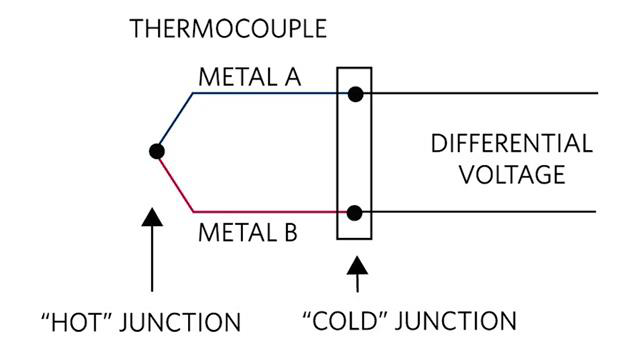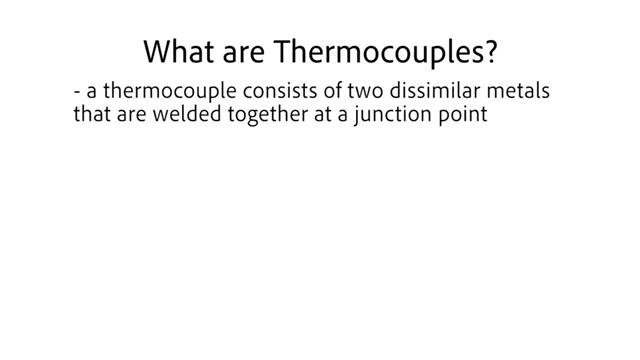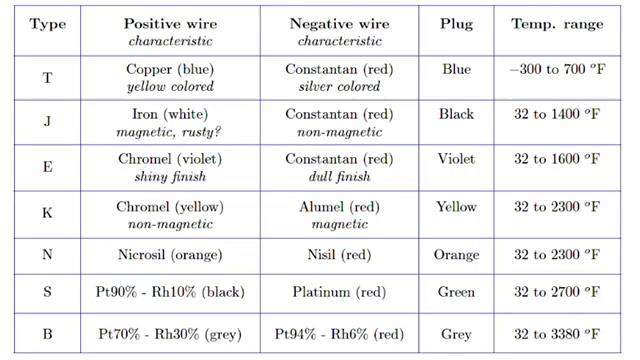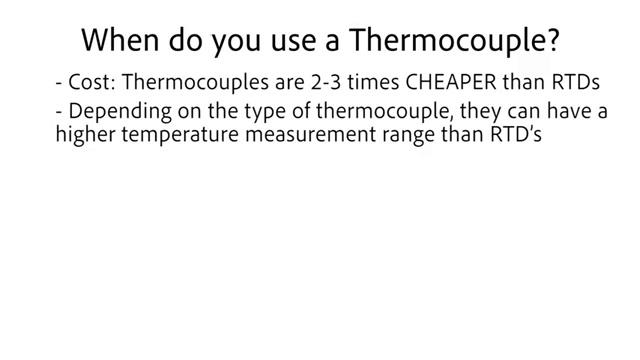Transcript:
[0m:4s] Hi I'm Josh Bloom, welcome to another video in the RSP Supply education series. If you find that these videos are helpful to you, it certainly helps us out if you could give us a big thumbs up and subscribe to our channel.
[0m:15s] In today's video, we are going to talk more about specialty sensors designed to measure temperature. In one of our other videos, we talked about a similar device called an RTD however today we are talking about
[0m:30s] thermocouples. Much like an RTD, thermocouples are used in a wide variety of commercial residential and industrial applications. Thermocouples much like an RTD are designed to accurately measure temperature, but the way they go about achieving that measurement is very different.
[0m:49s] In today's video, we will talk about the hardware that makes up the thermocouple. We will also talk about how they actually work and in what applications it makes sense to use a thermcouple as opposed to other temperature measurement devices.
[1m:6s] So what makes up a thermocouple? Simply put, a thermocouple consists of two dissimilar metals. These two different metals are welded together at one end, creating a junction between them.

[1m:20s] It is at this point where the temperature can actually be measured.
[1m:24s] To protect the two different metal conductors, it is common to see this measurement end of the thermocouple housed in some sort of protective sheathing, commonly stainless steel, but other materials can be used as well.

[1m:38s] The two types of metal used with the thermocouple can vary depending on the type of thermocouple that is purchased.
[1m:45s] Type K thermocouples are one of the most common and they use a combination of nickel chromium and nickel aluminum.

[1m:53s] But again, depending on the type of thermocouple, those combinations can vary greatly.
[1m:59s] So how does the thermocouple actually work? Well it's really quite simple, which is one of the reasons it can be such a reliable method for measuring temperature.

[2m:8s] When the two conjoined metal types experience any kind of temperature change, there is a very specific voltage that is created.
[2m:17s] Based off of the amount of voltage that is created, you can determine the temperature very accurately.
[2m:23s] Thermocouple voltage reference tables can be used to find out the temperature ranges based off of the type of thermocouple being used and the voltage that is being created.
[2m:34s] So why would you use a thermocouple as opposed to an RTD or other temperature measuring devices? There are a few main factors that make thermocouples very good options in certain situations.
[2m:48s] First and foremost is cost.
[2m:51s] The average thermocouple can cost about two to 3 times less than the average RTD.
[2m:58s] So that alone makes them a better option for many people.
[3m:1s] Also depending on the type of thermocouple that is being used, they can have a higher temperature measurement range than RTDs. For example, Noble metal thermocouples can measure temperatures as high as 3100 degrees Fahrenheit.
[3m:17s] Another strong reason why you might use thermocouples is the fact that that in general, they are considered more durable overall than RTDs or other measurement devices. With all the advantages they can offer, there are a few disadvantages. First, they are not considered to be as accurate in temperature measurements as RTDs. Also in many lower temperature scenarios, RTDs can provide better resolution, giving the user a more accurate measurement.

[3m:47s] As you can see, there are many different applications where using a thermocouple is a great option. With their relatively low cost and high level of reliability, they make a great option wherever temperature measurements are important.
[4m:0s] For a full line of thermocouples and thousands of other products, please go to our website. For more information or other educational videos, go to RSPSupply.com, the Internet's top source for industrial hardware. Also




